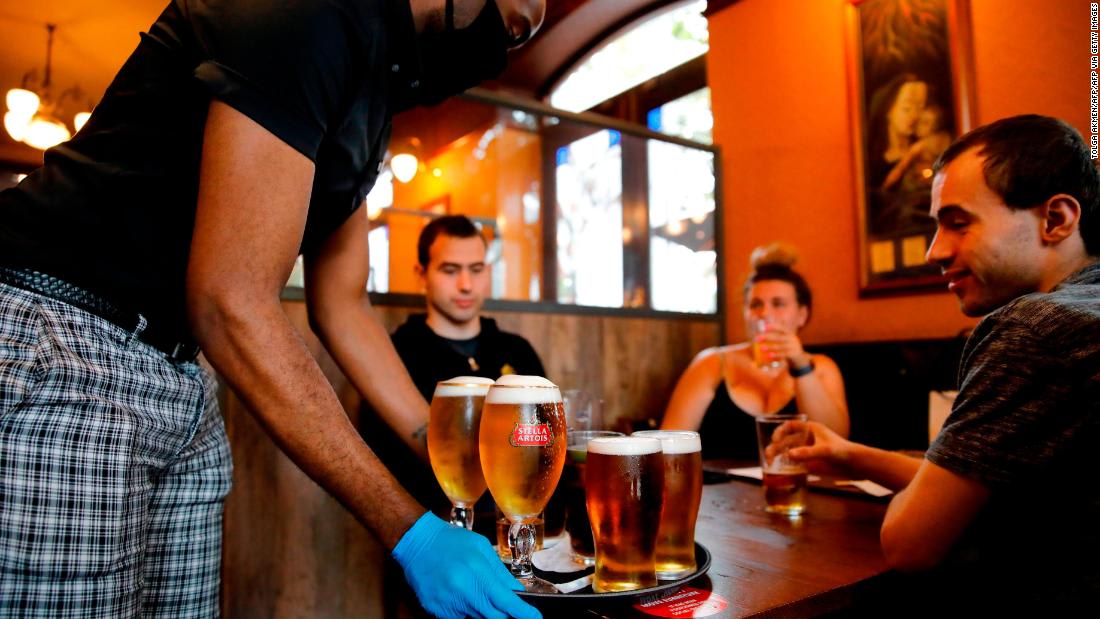Australian Medical Association calls for pause on easing Covid-19 restrictions as cases rise
From CNN’s Hilary Whiteman in Brisbane
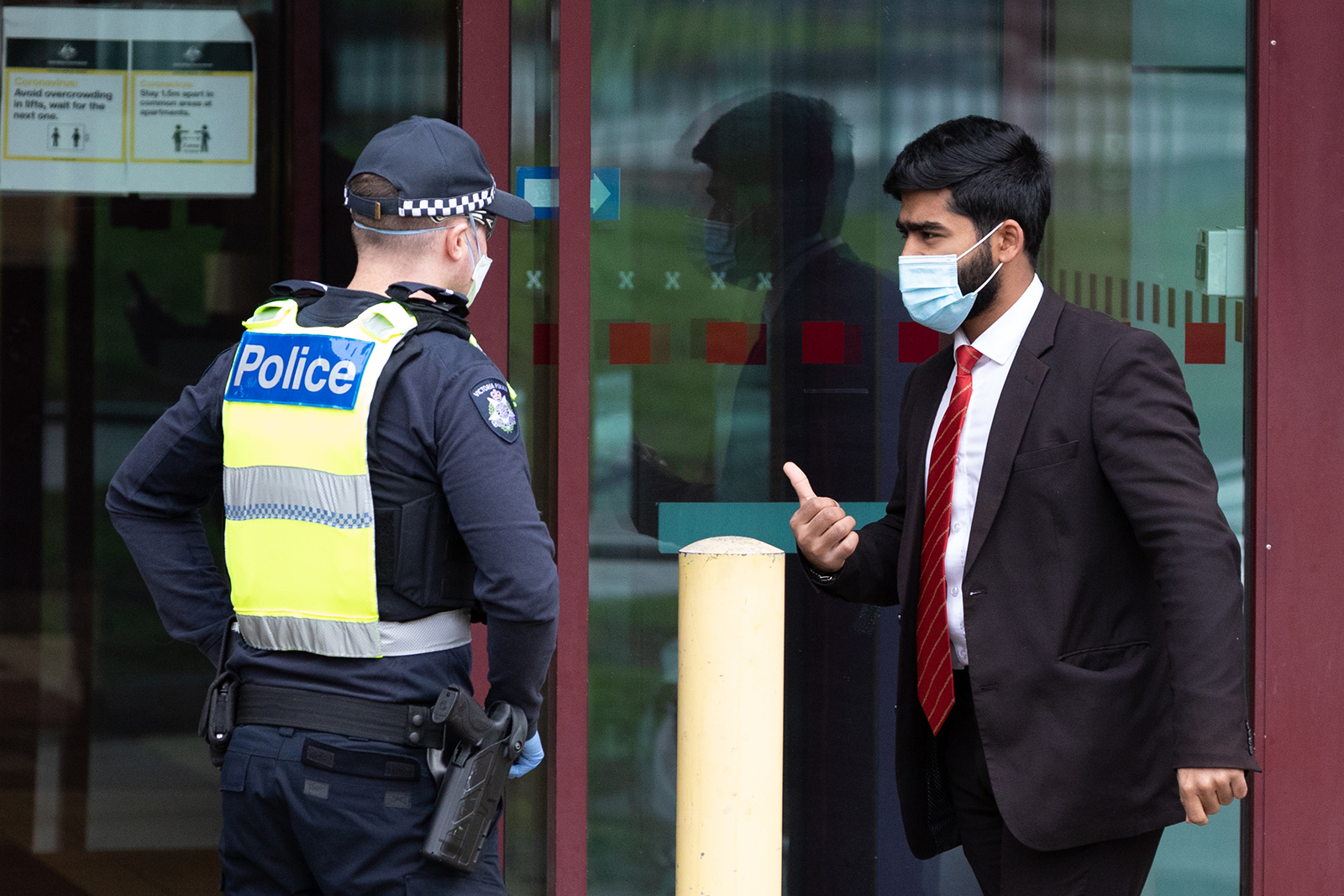 Police speak to a man outside the North Melbourne Public housing flats on July 5, in Melbourne, Australia. Asanka Ratnayake/Getty Images
Police speak to a man outside the North Melbourne Public housing flats on July 5, in Melbourne, Australia. Asanka Ratnayake/Getty ImagesThe Australian Medical Association (AMA) has called for a pause in easing Covid-19 restrictions and territories until clear evidence shows the outbreaks in Melbourne are under control.
There has been a spike in coronavirus cases in Melbourne, Australia, in recent days, leading to new lockdowns across the city, including over 3,000 people in public housing.
AMA President Tony Bartone said the new outbreaks are a stark reminder the fight against coronavirus is far from over, according to a press release from AMA.
Bartone said the outbreaks were “directly linked to failures to follow established and successful public health guidelines” and that Australia should play it safe before “rushing back to the pub, the footy crowds, or the big weddings and parties.”
Coronavirus cases have been rising sharply across the state of Victoria for nearly three weeks.
Brazil marks 50 days without a Health Minister ... during a pandemic
From Marcia Reverdosa in São Paulo and CNN's Radina Gigova in Atlanta
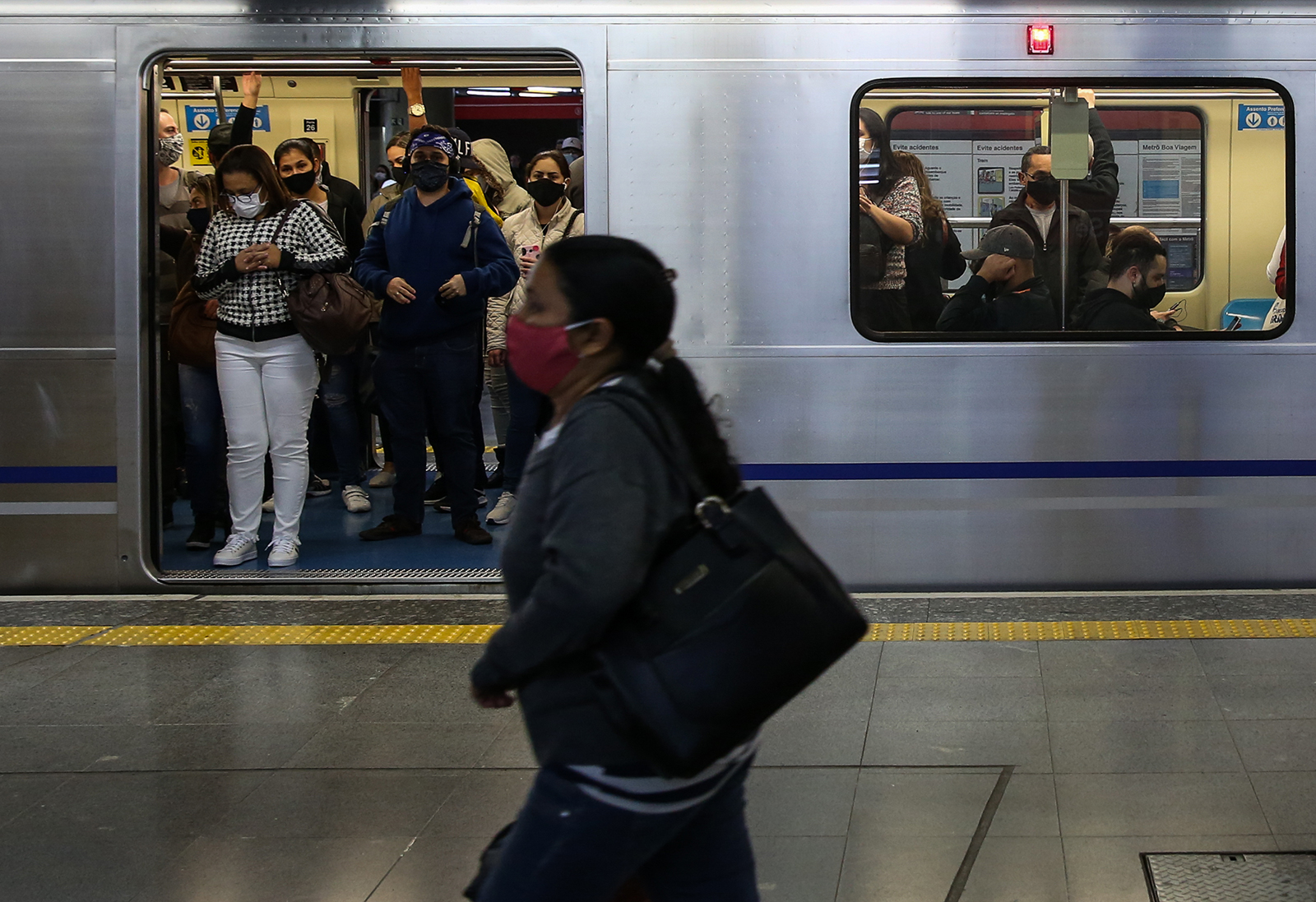 Passengers wearing face masks ride a subway car in downtown Sao Paulo on June 29, in Sao Paulo, Brazil. Alexandre Schneider/Getty Images
Passengers wearing face masks ride a subway car in downtown Sao Paulo on June 29, in Sao Paulo, Brazil. Alexandre Schneider/Getty ImagesBrazil marked 50 days without an official Health Minister on Saturday, as the coronavirus pandemic that has infected more than 1.5 million of its citizens, and killed at least 63,000, continues to grip the country.
The position has been temporarily filled by Army General Eduardo Pazzuello, who has no medical experience, since the last Health Minister, Nelson Teich, quit on May 15.
Teich, who spent less than a month in office, left amid criticism from President Jair Bolsonaro that he was "too timid in the push to reopen the economy and to advocate for the use of chloroquine." Teich didn't provide a reason for his resignation.
Teich's predecesor, Luiz Henrique Mandetta, who advocated for social distancing measures and the use of masks was fired by Bolsonaro.
Bolsonaro, who frequently defies social distancing guidelines recommended by most health experts and has dismissed the virus as "a little flu," has been widely criticized for downplaying the severity of the virus.
On Friday, Bolsonaro vetoed parts of a law that mandates wearing face masks in public during the pandemic. The use of masks in shopping malls, stores, religious temples, educational establishments and other closed places where people gather will no longer be mandatory, but individual states and municipalities can enforce those measures.
Brazil has the second highest number coronavirus cases and deaths globally after the US.
English pubs are reopening. Here's what it's like
By Rob Picheta, CNN
Pubs are the beating heart of Britain.
The revered English poet William Blake once purportedly likened an English pub to a church, with two important caveats: "a pub is warmer, and there's more conversation."
For the writer Samuel Johnson, there was "nothing which has yet been contrived by man, by which so much happiness is produced as by a good tavern." And the sentiment was captured by Shakespeare, too: a character in "Henry V" wishes he were "in an alehouse in London," reasoning: "I would give all my fame for a pot of ale and safety."
But for the first time since World War II, ale and safety have become mutually exclusive commodities -- and millions have been locked out of their locals since mid-March as a result.
Prime Minister Boris Johnson ordered the UK's 60,000 pubs to close 15 weeks ago to fight the coronavirus pandemic. Arguably, nothing has symbolized the country's subsequent social and cultural paralysis more than the sight of boarded up taverns on every high street.
But England finally returned to the pub on Saturday, the first day of the country's latest, most significant easing of lockdown restrictions. Those in Scotland, Northern Ireland and Wales must wait longer to return to their local.
Read more here:
Trump baselessly claims 99% of coronavirus cases "are totally harmless"
From Jeremy Diamond and Kevin Bohn
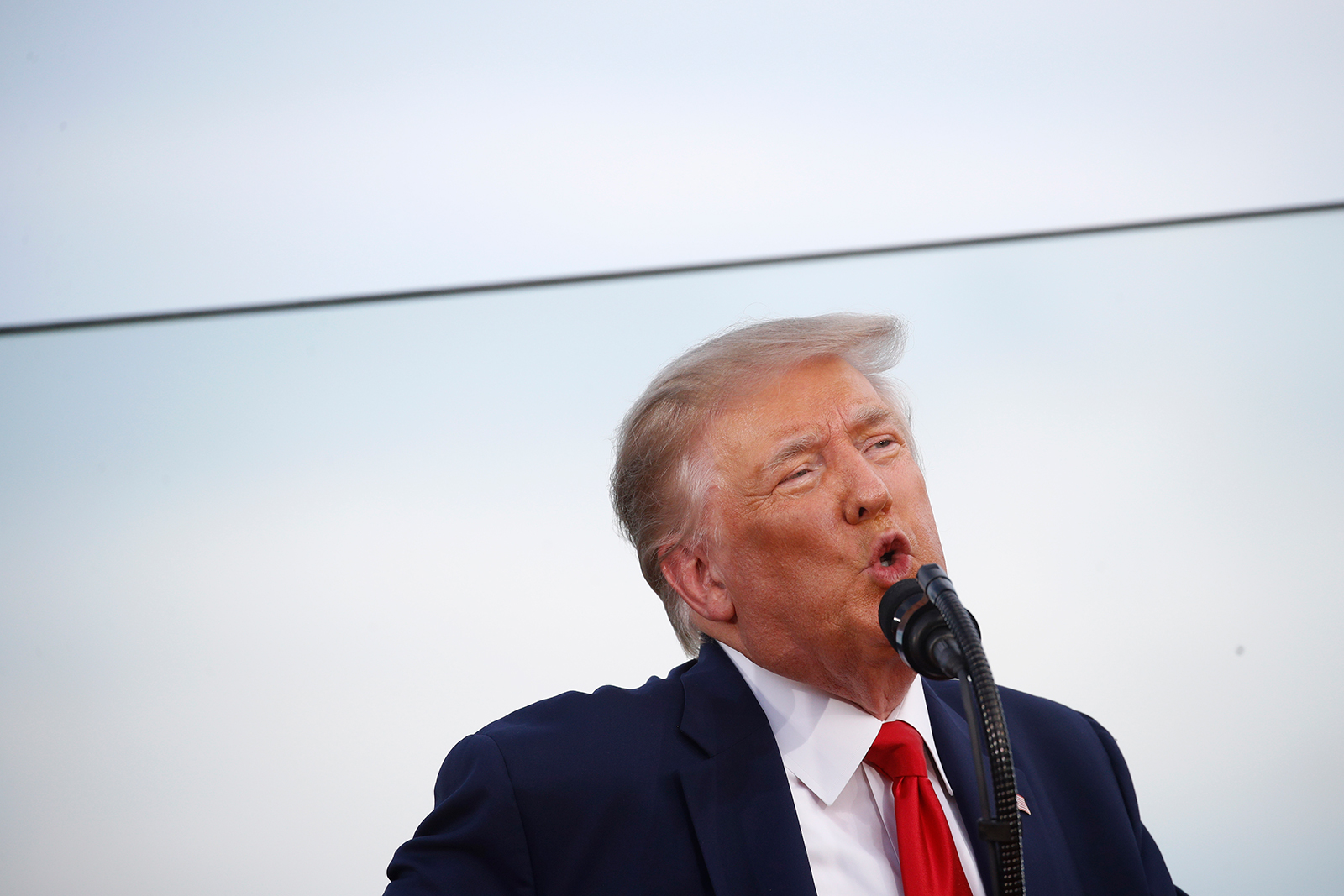 US President Donald Trump speaks during a "Salute to America" event on the South Lawn of the White House, on July 4, in Washington DC. Patrick Semansky/AP
US President Donald Trump speaks during a "Salute to America" event on the South Lawn of the White House, on July 4, in Washington DC. Patrick Semansky/APUS President Donald Trump claimed without evidence on Saturday that 99% of coronavirus cases "are totally harmless" during remarks on the White House South Lawn, in which he sought to downplay the recent surge of Covid-19 cases.
There have been more than 2.8 million cases of coronavirus in the United States and at least 129,000 people in the United States have died, according to Johns Hopkins University’s latest tally.
Some people who become ill have only mild symptoms, and the US Centers for Disease Control and Prevention estimates that 35% of cases are asymptomatic, but even people with mild or no symptoms can spread the virus to others.
While the World Health Organization has said the global fatality rate is like less than 1%, the WHO also said about 20% of all people who are diagnosed with Cornoavirus aresick enough to need oxygen or hospital care.
The White House has not returned a message seeking comment.
As US sets records in coronavirus cases, Trump says "we've made a lot of progress"
From CNN's Kevin Bohn and Daniella Mora
As many states continue to see spikes in the number of coronavirus cases, US President Donald Trump touted the progress the country has made combatting the virus.
He said the nation has now made “tens of thousands” of ventilators and have now started distributing them overseas.
On testing, pointed out the country has now almost 40 million people. However, experts have said more tests are needed to get a full picture of the virus.
“We have the most and finest testing anywhere in the world, and we are producing gowns and masks and surgical equipment in our country.”
Trump has recently complained about how many tests are being conducted in the nation because he has claimed that is the reason for the larger amount of cases -- a contention disputed by health experts. He recently said the country should do less testing. While administration officials contended Trump was joking, he later said he doesn’t joke.
WHO discontinues studies of hydroxychloroquine in hospitalized Covid-19 patients
From CNN Health’s Gisela Crespo
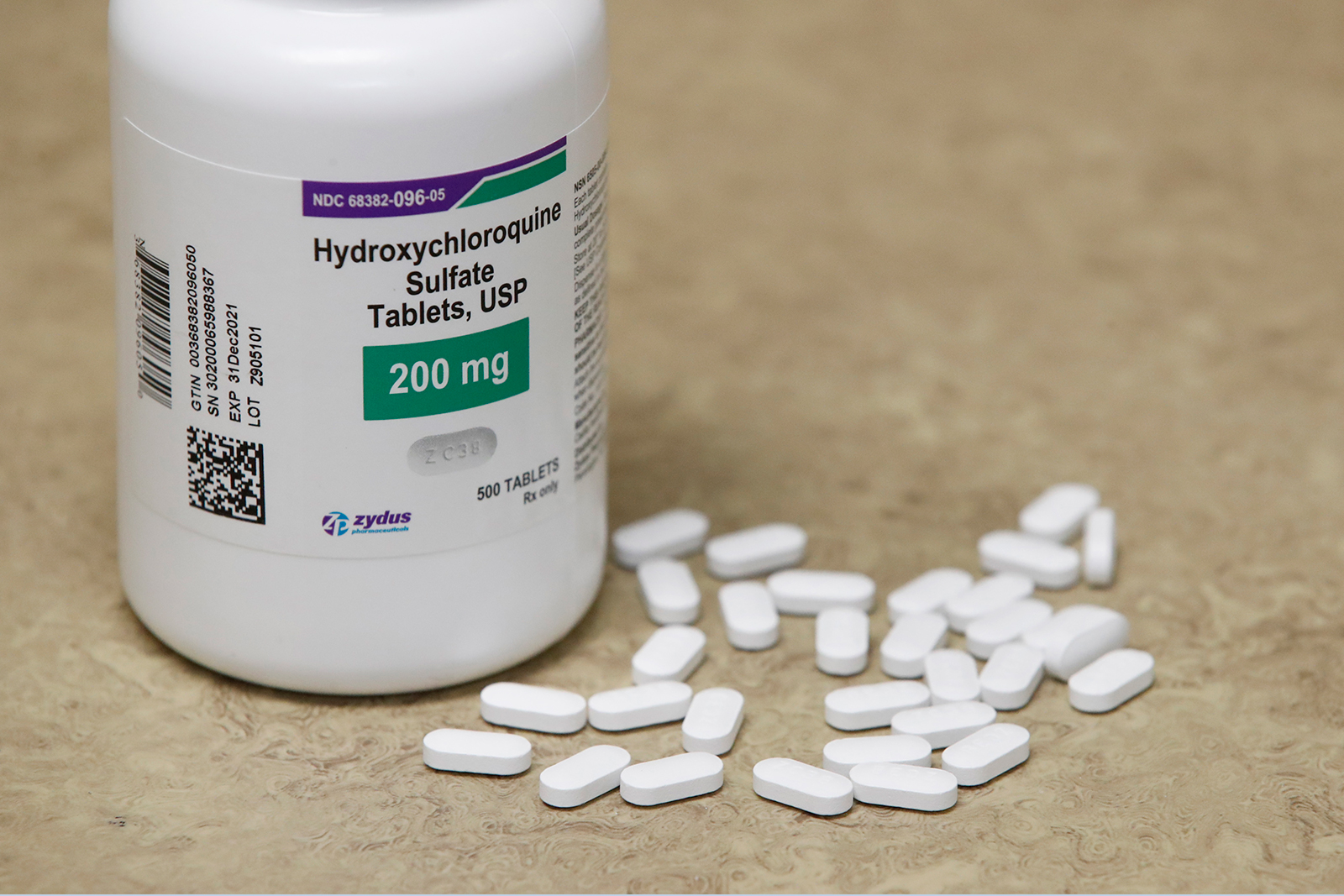 A bottle and pills of Hydroxychloroquine sit on a counter at Rock Canyon Pharmacy in Provo, Utah, on May 20. George Frey/AFP/Getty Images
A bottle and pills of Hydroxychloroquine sit on a counter at Rock Canyon Pharmacy in Provo, Utah, on May 20. George Frey/AFP/Getty ImagesThe World Health Organization (WHO) announced Saturday it would no longer continue studying the effectiveness of hydroxychloroquine and lopinavir/ritonavir as treatments for Covid-19.
WHO made the decision based on the Solidarity Trial's interim results, which show that hydroxychloroquine and lopinavir/ritonavir produce little or no reduction in deaths of hospitalized Covid-19 patients, WHO said in a statement.
This decision applies only to the trial in hospitalized patients, and does not affect studies of prevention or treatments in non-hospitalized patients.
WHO paused the hydroxychloroquine study in May due to safety concerns, then later restarted it. The drug has often been touted by President Trump, but several studies have found no benefits to treating Covid-19 patients with the antimalarial drug.
The US Food and Drug Administration revoked its emergency use authorization for both hydroxychloroquine and chloroquine for the treatment of Covid-19, saying the drugs are unlikely to be effective in treating the virus based on the latest scientific evidence.
The National Institutes of Health announced last month it was halting its clinical trial of the drug.

 5 years ago
660
5 years ago
660 